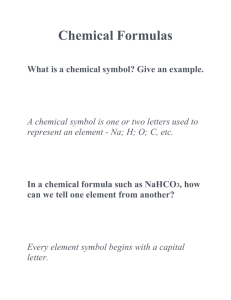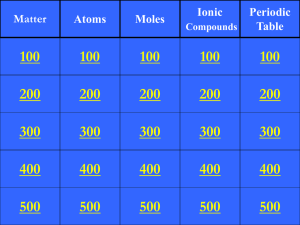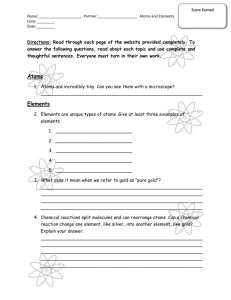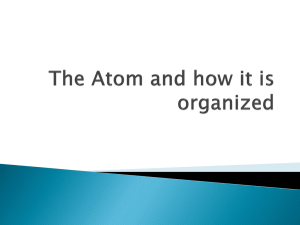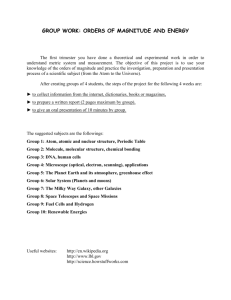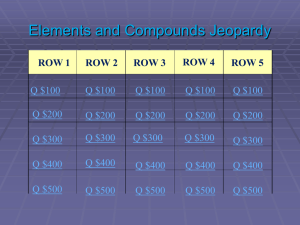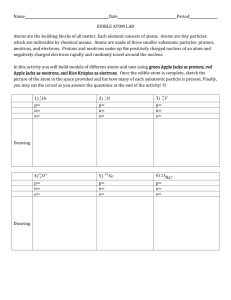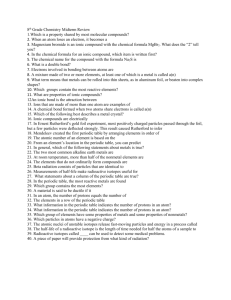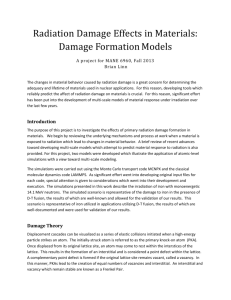Periodic Table During the time of Aristotle in 400BC, people thought
advertisement
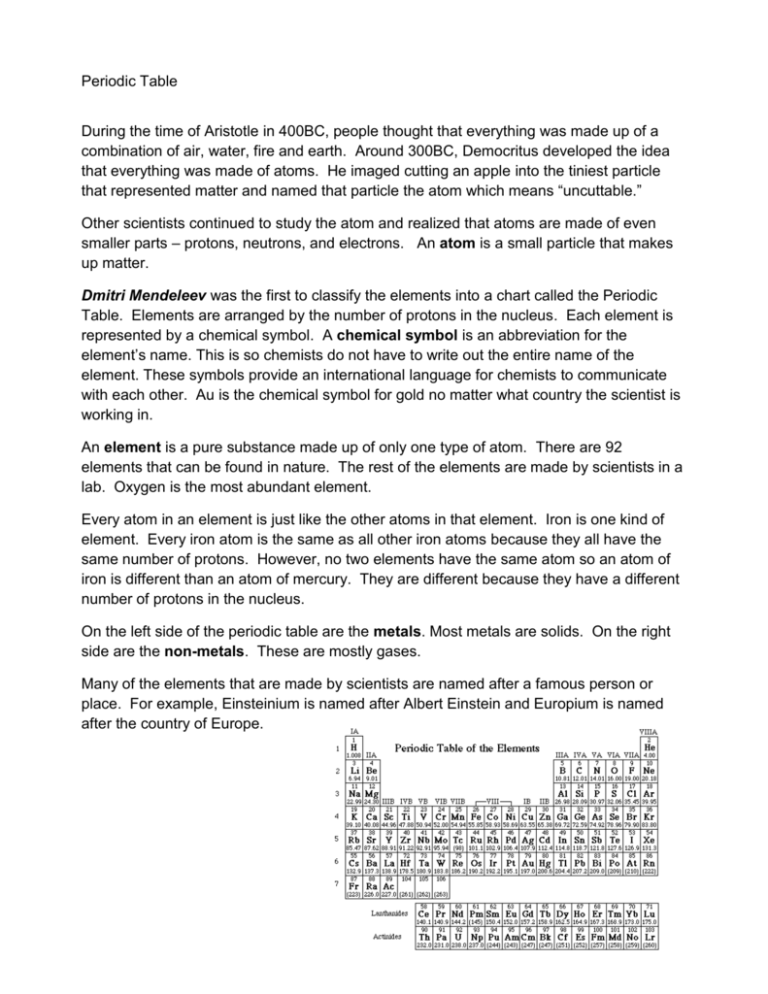
Periodic Table During the time of Aristotle in 400BC, people thought that everything was made up of a combination of air, water, fire and earth. Around 300BC, Democritus developed the idea that everything was made of atoms. He imaged cutting an apple into the tiniest particle that represented matter and named that particle the atom which means “uncuttable.” Other scientists continued to study the atom and realized that atoms are made of even smaller parts – protons, neutrons, and electrons. An atom is a small particle that makes up matter. Dmitri Mendeleev was the first to classify the elements into a chart called the Periodic Table. Elements are arranged by the number of protons in the nucleus. Each element is represented by a chemical symbol. A chemical symbol is an abbreviation for the element’s name. This is so chemists do not have to write out the entire name of the element. These symbols provide an international language for chemists to communicate with each other. Au is the chemical symbol for gold no matter what country the scientist is working in. An element is a pure substance made up of only one type of atom. There are 92 elements that can be found in nature. The rest of the elements are made by scientists in a lab. Oxygen is the most abundant element. Every atom in an element is just like the other atoms in that element. Iron is one kind of element. Every iron atom is the same as all other iron atoms because they all have the same number of protons. However, no two elements have the same atom so an atom of iron is different than an atom of mercury. They are different because they have a different number of protons in the nucleus. On the left side of the periodic table are the metals. Most metals are solids. On the right side are the non-metals. These are mostly gases. Many of the elements that are made by scientists are named after a famous person or place. For example, Einsteinium is named after Albert Einstein and Europium is named after the country of Europe. Most symbols are easy to recognize or remember because they are the same as the first letters of the element’s name. Some symbols come from the Latin name for the element. Here are some examples: Gold Chemical Symbol Au Iron Fe Ferrum Mercury Hg Hydrargyrum Potassium K Kalite Lead Pb Plumbum Sodium Na Natrium Element Name Latin Name Aurum 1. What did early scientists believe were the four things that made up everything? _____________________________________________________________________ 2. What is an atom? ______________________________________________________ 3. The elements are arranged on the Periodic Table by the number of _______________ 4. Who made the first periodic table? ________________________________________ 5. What is a chemical symbol? ____________________________________________ 6. Which side of the periodic table – right or left – would you find metals? ____________ 7. In what state (solid, liquid, gas) are most non-metals? _________________________ 8. How do chemical symbols help scientists communicate with each other? ____________________________________________________________________ 9. Why are some chemical symbols different from the name of the element? _____________________________________________________________________
